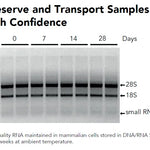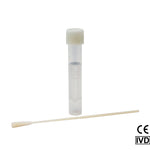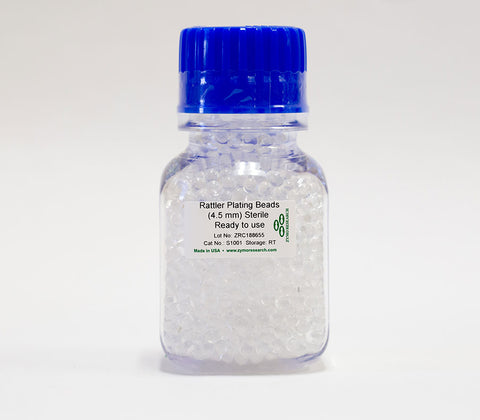Successfully Added to Cart
Customers also bought...
-
 DNA/RNA Shield (50 ml)Cat#: R1100-50DNA/RNA Shield reagent is a DNA and RNA stabilization solution for nucleic acids in any biological sample. This DNA and RNA stabilization solution preserves the...
DNA/RNA Shield (50 ml)Cat#: R1100-50DNA/RNA Shield reagent is a DNA and RNA stabilization solution for nucleic acids in any biological sample. This DNA and RNA stabilization solution preserves the... -
 DNA/RNA Shield SafeCollect Swab Collection Kit (1 ml fill) (1 collection kit)Cat#: R1160The DNA/RNA Shield SafeCollect Swab Collection Kit is a user-friendly collection kit for stabilizing the nucleic acid content of samples collected with a swab. DNA/RNA...
DNA/RNA Shield SafeCollect Swab Collection Kit (1 ml fill) (1 collection kit)Cat#: R1160The DNA/RNA Shield SafeCollect Swab Collection Kit is a user-friendly collection kit for stabilizing the nucleic acid content of samples collected with a swab. DNA/RNA...
Highlights
- Fast & Easy-To-Use: Simply pour beads onto the plate, and shake to quickly spread cells evenly over the entire surface. Ideal for processing multiple plates simultaneously.
- No Flaming Required: 4.5 mm glass plating beads are provided sterile in polycarbonate bottles.
- Reusable: Just clean and autoclave after use.
Original Manufacturer
Satisfaction 100% guaranteed, read Our Promise
Innovated in California, Made in the USA
Highlights
- Fast & Easy-To-Use: Simply pour beads onto the plate, and shake to quickly spread cells evenly over the entire surface. Ideal for processing multiple plates simultaneously.
- No Flaming Required: 4.5 mm glass plating beads are provided sterile in polycarbonate bottles.
- Reusable: Just clean and autoclave after use.
Original Manufacturer
Satisfaction 100% guaranteed, read Our Promise
Innovated in California, Made in the USA
Description
Performance
Technical Specifications
| Material | Solid, glass 4.5 mm beads that can be washed, autoclaved, and reused. |
|---|---|
| Packaging | The sterile format is supplied in a polycarbonate, autoclavable wide mouth bottle. The bulk format is supplied non-sterile as a 25 kg bag. |
| Product Storage | Room Temperature |
Resources
Documents
FAQ
The 230 g bottle contains approximately 1800 beads (one bead weighs 128 mg).
To re-use the rattler beads, simply wash the beads first with bleach, and then rinse with water before autoclaving.
Citations
Need help? Contact Us




